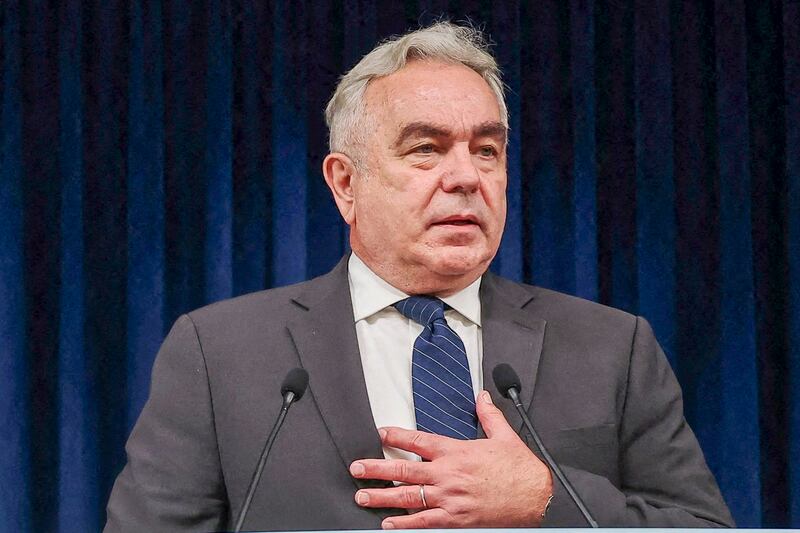The United States can no longer go it alone on defense technology innovation and the production of military hardware, with foes like China and Russia already “outpacing” U.S. capabilities in some key areas, an Australian diplomat said in Washington on Friday.
The comments came as a deadline looms within weeks for U.S. President Joe Biden to sign-off on a deal approved by Congress last year for Australia and the United Kingdom to be able to import sensitive American military technology without requiring a license.
The controversial deal is central to " Pillar 2" of the AUKUS security pact between the three allies, which envisions a " seamless" defense industry across the countries to allow them to jointly develop new defense technologies and produce more military hardware.
Pillar 2 was opposed by some American lawmakers, who said it could make it easier for Chinese spies to obtain U.S. defense secrets, and was even stymied by the U.S. State Department, which argued existing licensing arrangements provided adequate access to allies.
However, Paul Myler, the soon-to-depart deputy head of the Australian Embassy in Washington, told an event at the Center for Strategic and International Studies that such bureaucracy was a relic of the past.

Myler said the United States had long resisted sharing defense technology secrets with allies, because it was “operating off a legacy playbook” from the Cold War that aimed to defeat the Soviet Union by preserving America’s global superiority in military innovation.
“This superiority was protected by a complex export-control regime that allowed for exports to U.S. allies and partners, but kept know-how and manufacturing capability strictly in U.S. hands,” he said. “That strategy worked while the U.S. maintained its technological superiority.”
But three decades after the Cold War, Myler said, America's defense industrial base was often struggling to produce hardware like nuclear submarines, while its foes were increasingly matching its capabilities.
“Almost all of those Cold War-era technologies have now proliferated,” he said of the once closely-guarded innovations. “In some instances, Russia and China are outpacing U.S. and allied capabilities.”
Looser U.S. export controls protected by better Australian and British security was the only fix, he said, so each AUKUS country can “take advantage of the innovative and productive capacities” of the others without fears that military secrets will fall into the wrong hands.
Pillar 2
Biden must decide by mid-April whether to approve the Congress-passed measure to authorize Australia and the United Kingdom for exemptions from the strict export controls.
A top State Department official said earlier this year that the two countries were on their way to convincing American officials that safeguards had been put in place to protect sensitive military technology.
“They are doing what they need and we're doing what we need to put in place all the steps that have to happen so that we can certify,” Bonnie Jenkins, the under secretary of state for arms control, told a House Foreign Affairs Committee hearing on Feb. 14.
“I feel very confident that we will certify,” she said.
A "seamless" AUKUS defense industrial base also looks set for some further expansion, with Deputy Secretary of State Kurt Campbell indicating on Wednesday there could be news after next week's visit to Washington by the leaders of Japan and the Philippines.

“It’s true that there are other countries that have expressed an interest to participate, under the right circumstances,” Campbell said.
“I think it was always believed when AUKUS was launched that, at some point, we would welcome new countries to participate, in particular, in Pillar 2,” the No. 2 American diplomat said. “I think you'll hear that we have something to say about that next week.”
The beans may have been spilled by the U.S. ambassador to Japan in a Wall Street Journal op-ed published the same day, though.
“Biden has injected new energy into the Quad and launched the Aukus defense pact with the U.K. and Australia,” Rahm Emanuel wrote, “with Japan about to become the first additional Pillar II partner.”
Edited by Malcolm Foster.
